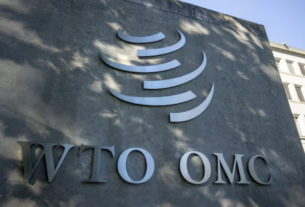North Korea launched strategic cruise missiles on January 26, 2025, as part of its ongoing military tests. The missiles were fired from a submarine and hit their targets off the country’s eastern coast. The move comes amid heightened tensions with the United States over regional military drills and U.S. sanctions.
North Korea’s government declared it would take a tough stance against the U.S. following the missile test. The North claims the U.S. actions, including joint military exercises with South Korea, provoke instability in the region. A spokesperson from the North Korean military warned that further escalations could lead to more provocative actions.
The missiles tested are designed for long-range precision strikes. Experts say they demonstrate North Korea’s increasing ability to target key U.S. military bases in the Pacific. The cruise missiles are part of the country’s effort to strengthen its deterrence capabilities against foreign threats.
The U.S. State Department quickly condemned the missile tests, calling them a threat to regional security. “North Korea’s missile launches undermine efforts for stability in the region,” said a U.S. official. The U.S. has called for diplomatic talks but has repeatedly stated that it will continue its military presence in the region.
South Korea expressed concern over the missile tests, emphasizing the need for restraint on both sides. The South Korean government called for a return to dialogue to ease the growing tensions. Many in the region fear that continued missile tests could destabilize an already volatile area.
Military experts believe North Korea is sending a message not only to the U.S. but also to its allies in Asia. By showcasing its missile technology, North Korea aims to assert its power and demand recognition on the global stage. The tests also highlight the growing military competition between the U.S. and North Korea.
North Korea’s missile tests are part of a long-standing pattern of military provocations aimed at boosting its defense capabilities. In 2024, the country conducted a series of ballistic missile tests that were met with international condemnation. Despite these reactions, North Korea has shown no signs of halting its missile development programs.
The ongoing missile tests are causing growing concern among neighboring countries. Japan has expressed fears about the potential for North Korea’s weapons to reach its territory. Experts suggest that continued missile tests could lead to a more assertive military response from both the U.S. and regional allies.
The North Korean leadership has clarified that it will continue prioritizing its military advancements. “We will never give up our right to defend ourselves,” said Kim Jong-un in a government statement. The country insists that its missile programs are necessary for its survival in the face of what it sees as a hostile international environment.
As the situation in the region develops, the international community calls for renewed diplomatic efforts. The U.S. and North Korea have a long history of tense relations, and this latest missile test could further strain those ties. If tensions continue to rise, it could lead to further instability in the Asia-Pacific region.




